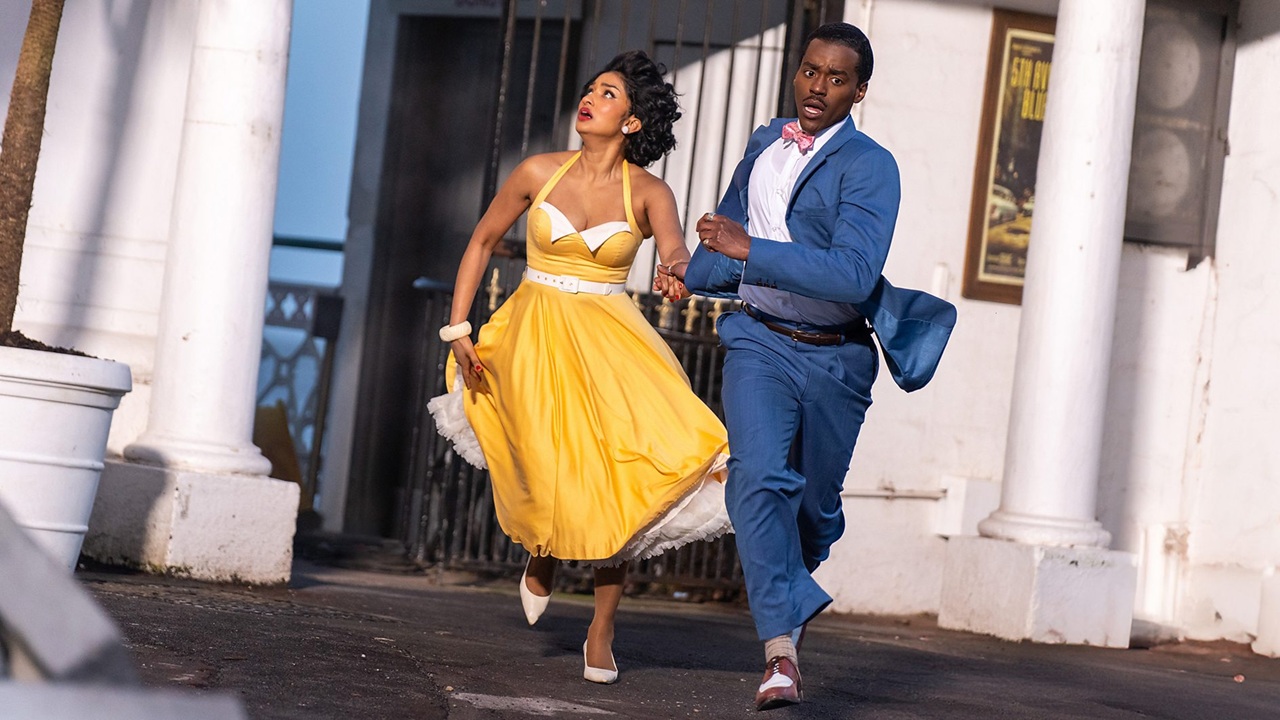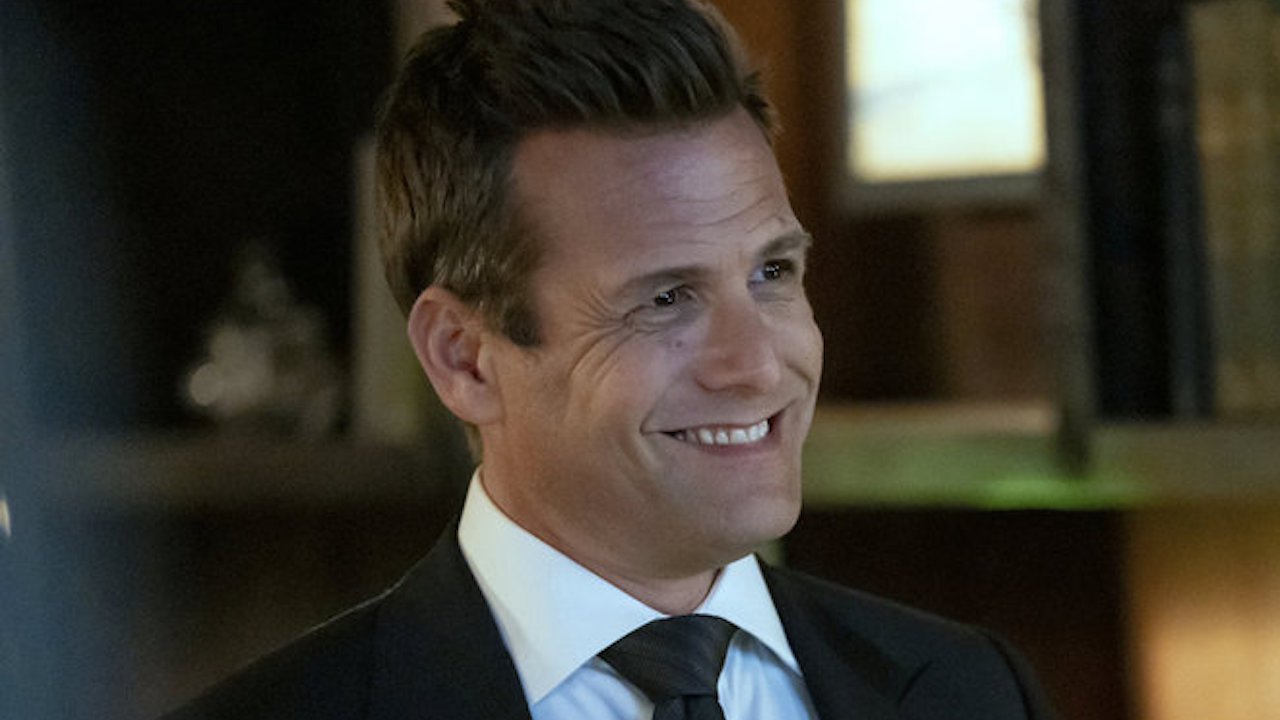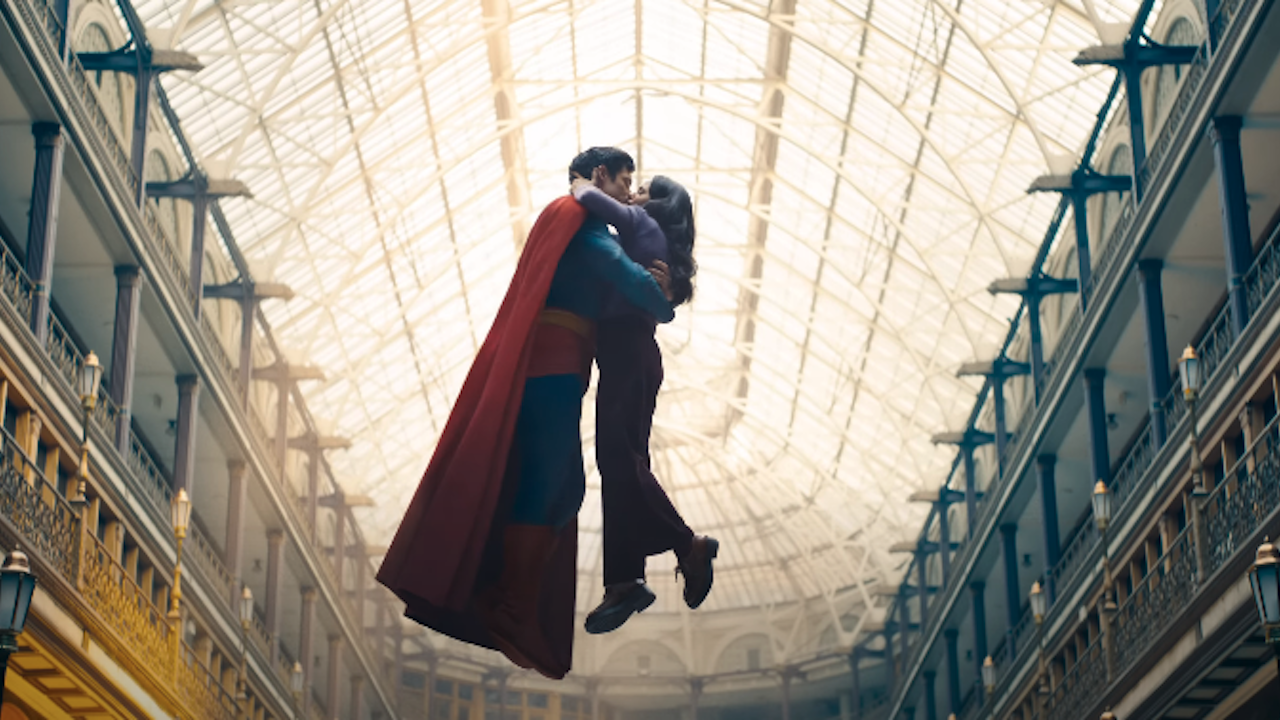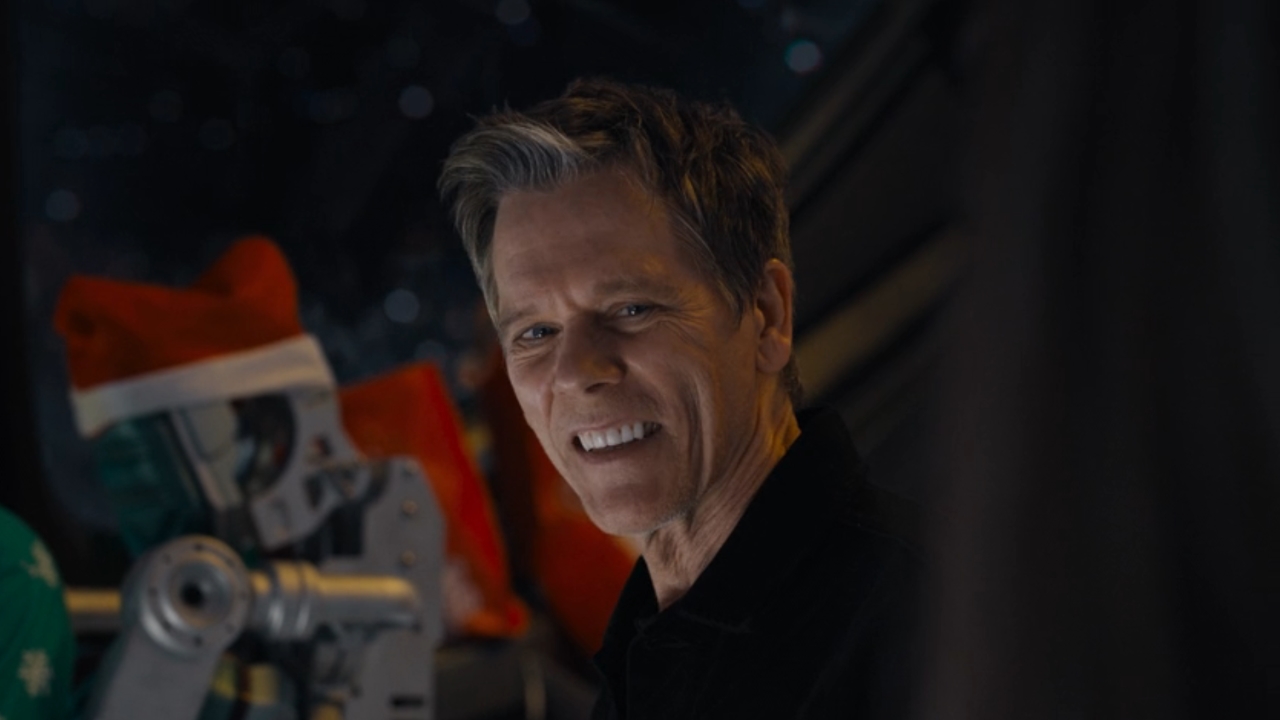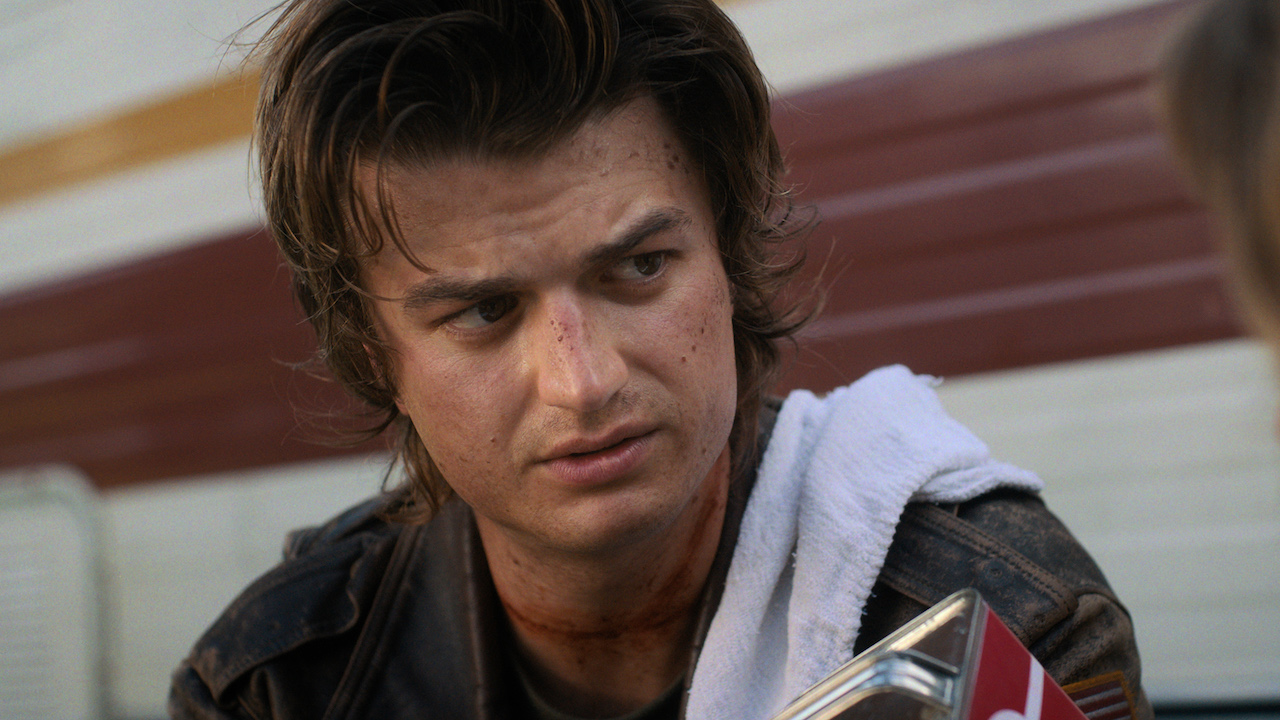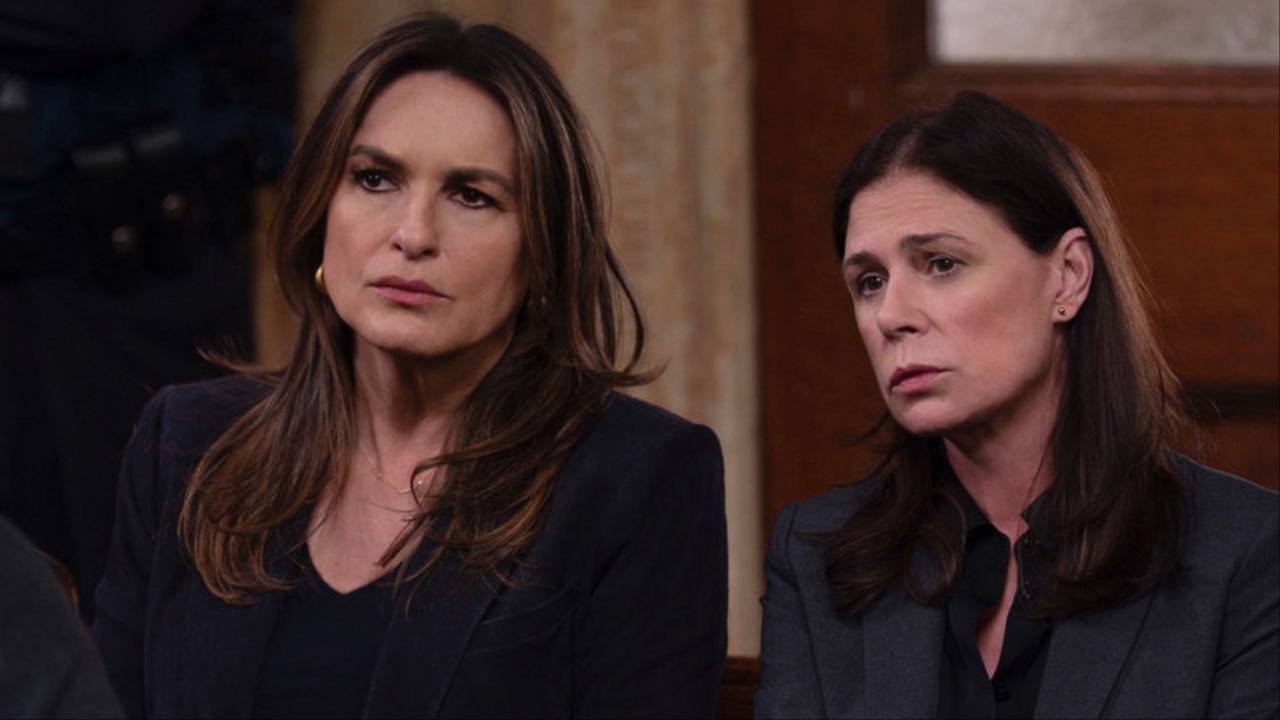Edgar Wright's The Running Man Should Make Two Key Changes To Stephen King's Story
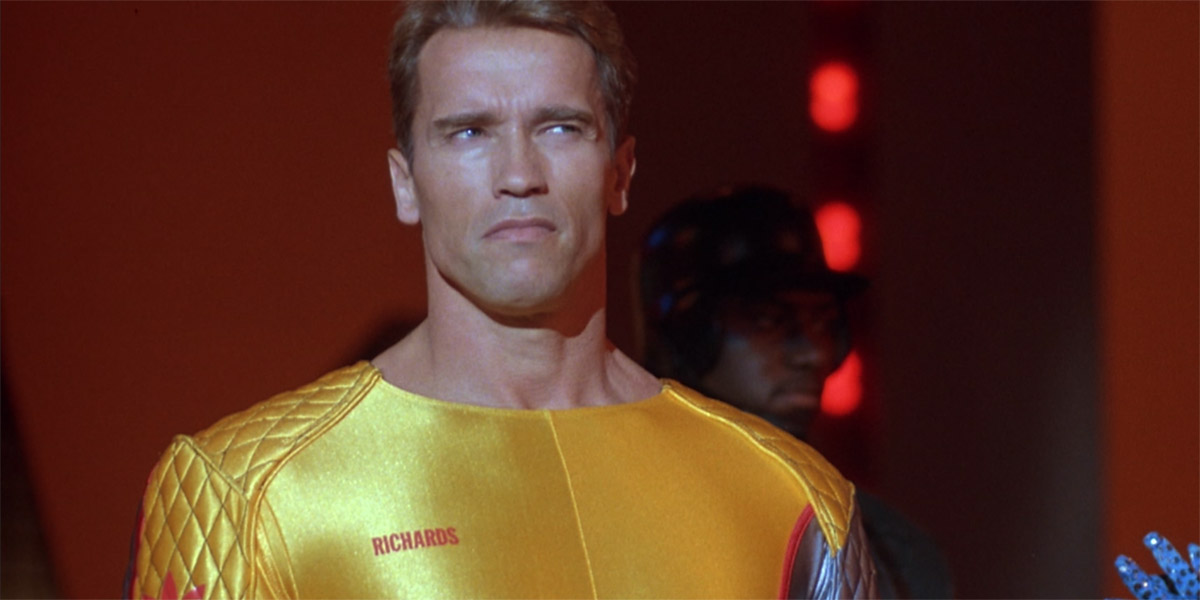
As far as Stephen King adaptations go, you’d be hard pressed to find one that deviates further from the source material than director Paul Michael Glaser’s The Running Man (and no, The Lawnmower Man doesn’t count). The idea of a dystopian world where bloody violence is a part of reality television is translated from the book to the 1987 film, and the hero and villain names (Ben Richards and Killian) are the same… but that’s pretty much where the links end. In simple terms, it’s much less of a King movie than it is an Arnold Schwarzenegger movie. And while that’s not meant to disparage what is a legitimately fun action flick, it means that we’ve never seen a proper big screen version of what is a dark and thrilling novel.
Thankfully, there are presently efforts in the works to right that particular wrong. It was recently announced that writer/director Edgar Wright is in the process of making a new film adaptation of The Running Man, and the plan is to make it as a more faithful adaptation of Stephen King’s book. Thanks to the fact that the themes in the story are as relevant today as they were when the 1982 Richard Bachman paperback was first published, and that it predicts more than a few woes that plague the 21st century, this seems like a very executable idea – though there are two particular alterations that the project may want to consider making. The first involves Ben Richards as a character, and the second involves the novel’s shocking and disturbing-in-retrospect ending (consider this your spoiler warning if you haven’t read it).
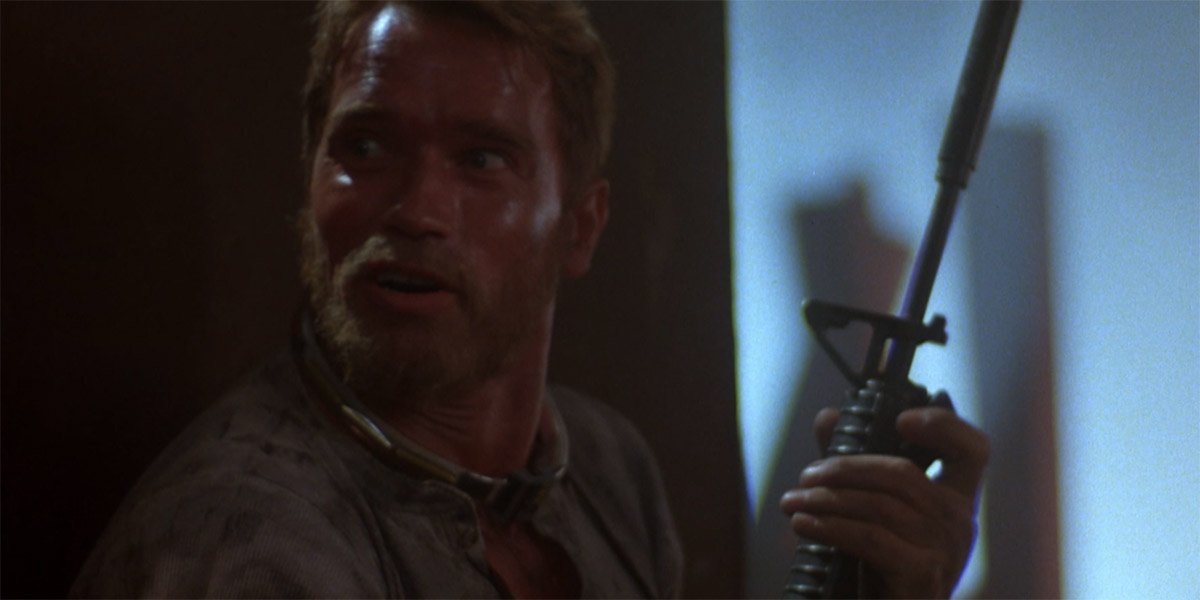
Ben Richards Should Be A Black Character
While their life circumstances are radically different, one thing that both the book’s version of Ben Richards and Arnold Schwarzenegger’s have in common is the depiction of the character as a rebel hero. Being made of strong moral character, he chooses to fight when his back is against the wall, and finds himself motivated as a force for good in a cripplingly corrupt world. It’s a traditional archetype that we see all the time in pop culture, from Luke Skywalker to Katniss Everdeen.
That also happens to be a terrifically small lens with which to look at the character, though. While the 1987 includes a backstory involving a career as a pilot refusing orders and being incarcerated in a military prison, Richards’ story comes from a much more simple and dark place in the novel. As originally created by Stephen King/Richard Bachman, he is an ordinary man in his late 20s living in abject poverty with his wife and sick baby. He is representative of society’s lowest class – destitute, blacklisted, and left to suffocate in the egregious pollution of the fictional Co-Op City. It’s desperation and the need to get pneumonia medicine for his daughter that drives him to volunteer for the Games Network – a propaganda arm of the totalitarian government with an assortment of shows that see people risk their lives in hopes of life-saving compensation.
Ben Richards is selected as the latest star of The Running Man, the Network’s flagship series, and it too is unlike the original movie depicts it. Rather than being rocketed into a course filled with murderous assassins, Richards instead is given a small grace period and then finds himself at the center of a nationwide manhunt – with not only a team known as The Hunters on his tail, but also viewers encouraged and paid for providing information regarding his whereabouts.
In the book the character is written as being white, which is a choice that does work for the story being told – but in adapting it for a new movie Edgar Wright has an interesting opportunity. If he has Ben Richards depicted a Black man, it will add whole new dimensions to the material, and create a whole new level of commentary that wouldn’t require any other radical changes.
Clearly there is plenty of meat to sink one’s teeth into when it comes to the themes of class warfare in The Running Man, but what is only going to further enhance the story is also grappling with the realities of systemic racism. The same issues and hardships that the protagonist faces in the fictional depiction of 2025 are the same that the Black community faces in the extreme in our world. While clearly not intentional, it is terrifically apt.
CINEMABLEND NEWSLETTER
Your Daily Blend of Entertainment News
What’s far more significant in this argument, however, is Ben Richards’ run as the contestant on the titular game show – a plot that can easily be made to be a parallel to the fraught relationship between Black people and the police in the United States. It’s subject matter that has been powerfully addressed cinematically in recent years through tremendous films including Blindspotting, The Hate U Give, and Queen & Slim, and while The Running Man would put a more genre spin on things, it has the potential to be no less powerful.
By making Ben Richards a Black character, it would give Edgar Wright’s movie a chance to advance and modernize the story, and give it a new connection to modernity. The other change that should be made to The Running Man, however, is, in a strange way, almost the exact opposite.
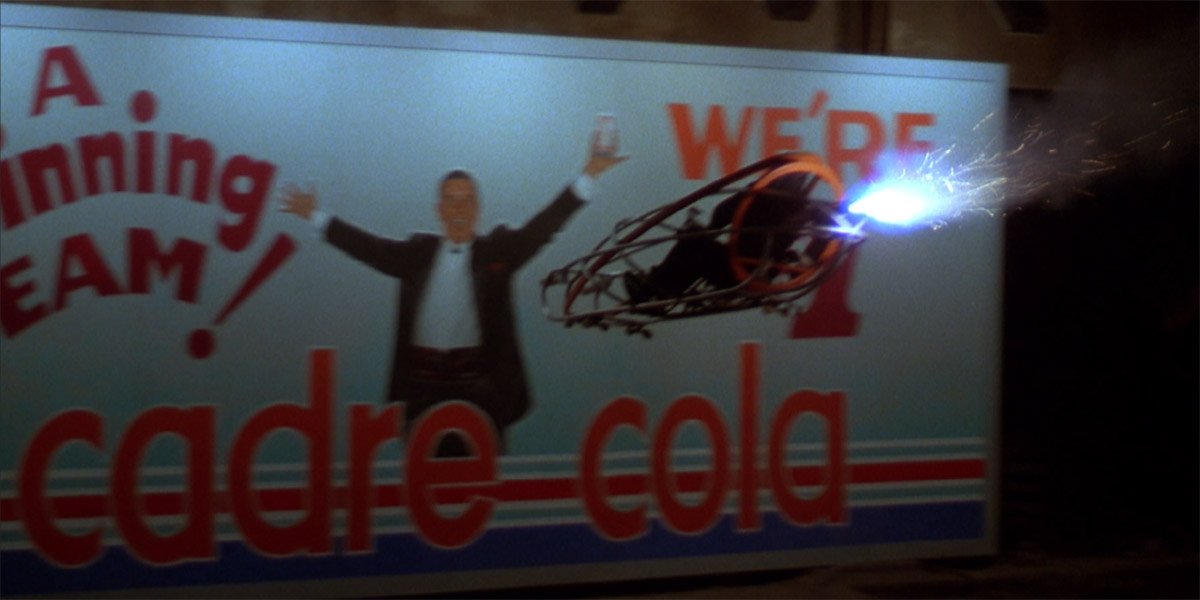
The Running Man’s Original Ending Can’t Be Adapted After September 11th
I’m going to stop dancing around it and be blunt: given the events that occurred on September 11, 2001, the original ending of The Running Man as written by Stephen King/Richard Bachman is un-filmable, and there is no rationalization for a modern adaptation of the book not to change it. There is no questioning that the final moments of the novel make a deep emotional impact, but the comparison to real events should render it off limits.
This isn’t to say that the whole ending should change – just a single part of it. The movie should still have Ben Richards first get seduced by the Network, and also learn the devastating news that his wife and child were killed shortly after he started being processed for the show. He should still go into a state of emotional collapse, and the idea of a blaze of glory shouldn’t be taken off the table. What absolutely cannot happen, however, is Richards hijacking a plane and crashing it into the Games Network headquarters.
Explanation for why really shouldn’t be necessary, but I’ll give it a shot anyway. There is only one event that audiences are going to think about if they see that conclusion play out in a big screen adaptation of The Running Man, and it would be both needlessly traumatic and insensitive. There are numerous directions a movie could go with the story that would maintain the spirit and have the same originally-intentioned power of the book, and to not pursue one of those alternatives would not come across as thought-provoking or daring, but instead cheap and awful.
What exactly will end up changing in the new adaptation is something that we won’t know until potentially years from now – but one thing to hold on to is that the project is definitely in trustworthy and talented hands with Edgar Wright. A more faithful take on The Running Man is an idea brimming with potential, and it would be great to see Wright make the suggested alterations to make the film the best it can be.

Eric Eisenberg is the Assistant Managing Editor at CinemaBlend. After graduating Boston University and earning a bachelor’s degree in journalism, he took a part-time job as a staff writer for CinemaBlend, and after six months was offered the opportunity to move to Los Angeles and take on a newly created West Coast Editor position. Over a decade later, he's continuing to advance his interests and expertise. In addition to conducting filmmaker interviews and contributing to the news and feature content of the site, Eric also oversees the Movie Reviews section, writes the the weekend box office report (published Sundays), and is the site's resident Stephen King expert. He has two King-related columns.
